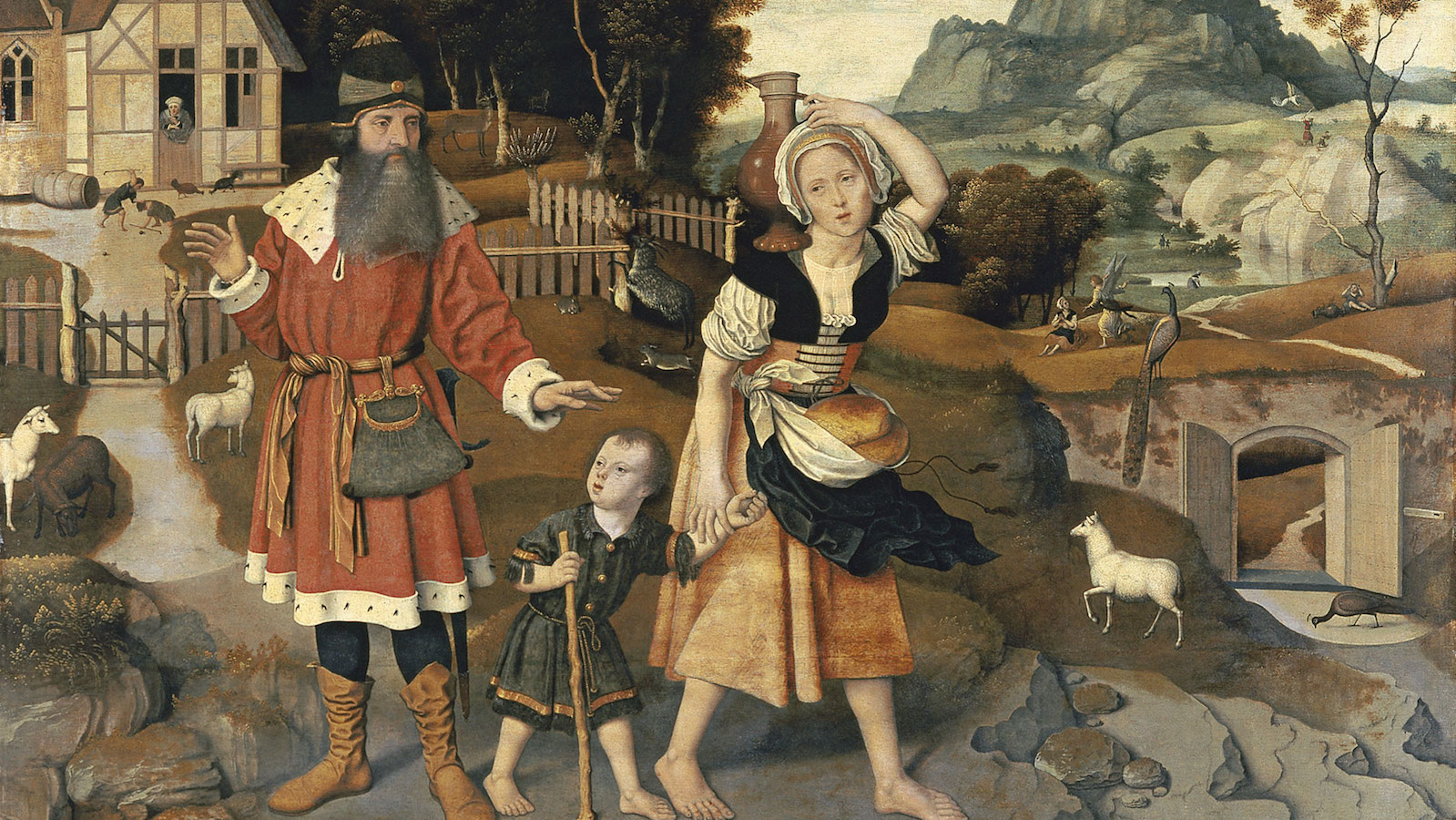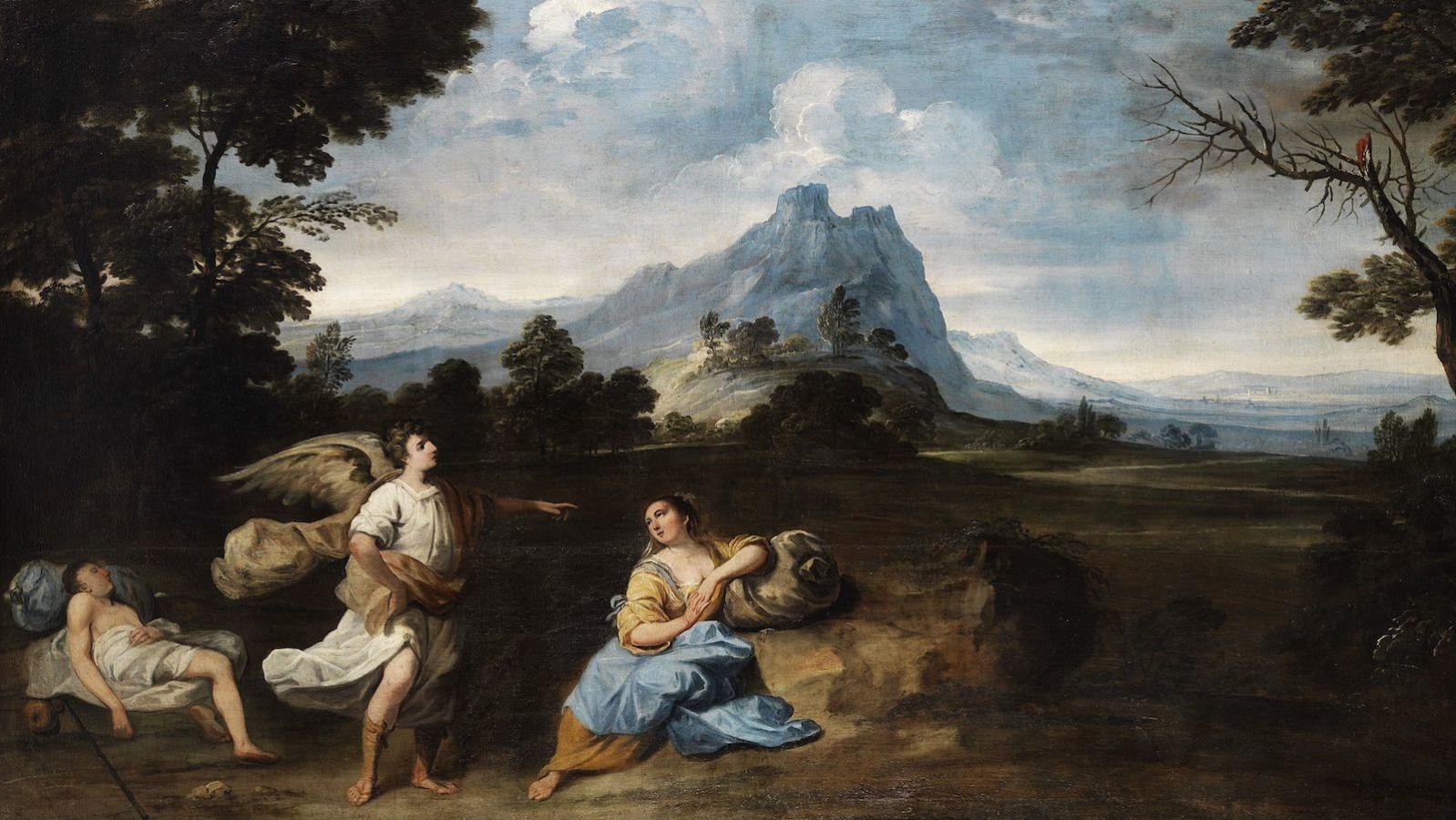
Have you ever taken a moment to reflect on the narratives that influence our beliefs and shape our understanding of the world? One particularly compelling story is that of Ishmael, who is recognized as the son of Abraham through Hagar. His life is not just a personal tale; it is a rich and intricate tapestry that intertwines with the foundational threads of Judaism, Christianity, and Islam. Each of these major religions offers a unique perspective on Ishmael, highlighting his significance in their respective traditions. In this article, we will embark on an in-depth exploration of Ishmael’s story, examining his role and the varying interpretations of his legacy across these three influential faiths. By delving into the historical and theological contexts surrounding Ishmael, we aim to uncover the profound impact he has had on religious thought and cultural identity throughout the centuries. Join us as we unravel the complexities of Ishmael’s narrative and its enduring relevance in today’s world.
1. Who Was Ishmael?

Ishmael is often regarded as a significant figure within the Abrahamic traditions, embodying themes of faith, family, and destiny. He was born to Hagar, who served as a maidservant to Abraham and his wife, Sarah. As the first son of Abraham, Ishmael’s story is not just a tale of lineage but a profound narrative that explores the complexities of divine promises and human struggles.
### 1.1 The Birth of Ishmael
The Old Testament recounts that Sarah, Abraham’s wife, faced the heart-wrenching challenge of infertility. In her desire to fulfill God’s promise of establishing a great nation through Abraham, she made the difficult decision to offer Hagar to him as a surrogate. This arrangement led to the birth of Ishmael, a moment that set in motion a series of events filled with both hope and conflict. Ishmael’s arrival symbolizes the intersection of divine intention and human action, highlighting the intricate relationship between faith and the choices we make.
### 1.2 The Role of Hagar
Hagar, an Egyptian maidservant, emerges as a pivotal character in Ishmael’s life story. Following Ishmael’s birth, the dynamics within the household shifted dramatically, resulting in escalating tensions between Hagar and Sarah. This discord ultimately culminated in Hagar and Ishmael being cast out into the desert, a banishment that carries deep implications for understanding family dynamics and faith within the Abrahamic traditions. Hagar’s resilience and her role as a mother navigating adversity underscore the complexities of love, loyalty, and survival in a world shaped by divine promises and human frailty.
2. The Banishment and Its Consequences

After the birth of Isaac, who was Abraham’s second son with his wife Sarah, a significant and difficult decision was made to send away Ishmael and his mother, Hagar. This action raises important questions about its necessity and implications for Ishmael’s future. What led to this separation, and what does it mean for Ishmael as he grows up?
In the wilderness, Hagar and Ishmael encountered severe hardships and were on the verge of death due to a lack of water. Just when their situation seemed hopeless, God intervened in a miraculous way, providing them with water from the renowned Well of Zamzam. This moment is crucial, as it highlights God’s mercy and His unwavering promise to Ishmael, ensuring their survival in the harsh desert environment.
Despite being cast out, God reassured Abraham that Ishmael would not be forgotten; instead, he would become the progenitor of a great nation. This divine promise is foundational to Islamic belief, where Ishmael is honored as a prophet and messenger. His legacy continues to resonate through generations, illustrating the profound impact of God’s promises and the significance of Ishmael’s lineage in the broader context of faith and history.
3. Ishmael in Islamic Tradition

In the Islamic tradition, Ishmael occupies a significant and revered position, transcending mere historical status to embody the ideals of faith and unwavering obedience. His portrayal in the Qur’an is multifaceted, emphasizing his role as a prophet and a pivotal figure in the lineage of Abraham. The Qur’an, while not extensively detailing his life, highlights Ishmael’s crucial contributions, particularly in assisting his father, Abraham, in the construction of the Kaaba. This sacred structure is considered the holiest site in Islam, and Ishmael’s involvement in its establishment underscores his importance within the Islamic faith and tradition.
One of the most profound narratives associated with Ishmael is the story of his intended sacrifice by Abraham, a moment that holds deep significance in Islamic teachings. Unlike the Biblical account, which centers on Isaac, Islamic tradition asserts that it was Ishmael who was to be sacrificed. This event is not only a testament to the faith of both father and son but also serves as a cornerstone of Islamic belief. The commemoration of this event is observed during Eid al-Adha, a major Islamic festival that celebrates sacrifice, obedience, and devotion to God. Through these narratives, Ishmael is celebrated as a symbol of faith, resilience, and the enduring legacy of obedience to divine will in Islam.
4. The Legacy of Ishmael

Ishmael’s legacy extends beyond his immediate story. He is often regarded as the progenitor of the Arab people. But what does this mean for his descendants?
4.1 The Arab Connection
Many Arabs trace their lineage back to Ishmael, viewing him as a founding figure. This connection fosters a sense of identity and belonging among Arab communities, linking them to a rich historical narrative.
4.2 A Symbol of Resilience
Ishmael’s story is one of resilience. Despite facing adversity, he emerged as a significant figure in religious history. His life teaches us about overcoming challenges and the importance of faith in difficult times.
5. Comparative Analysis: Ishmael in Judaism, Christianity, and Islam

How does Ishmael’s portrayal differ across these three religions? Let’s break it down.
| Aspect | Judaism | Christianity | Islam |
|---|---|---|---|
| Birth | Born to Hagar as a result of Sarah’s barrenness. | Similar to Judaism, with emphasis on God’s promise. | Born to Hagar; viewed as a prophet. |
| Banishment | Sent away after Isaac’s birth. | Focus on Isaac as the covenant heir. | Sent away but promised a great nation. |
| Significance | Minor figure, ancestor of the Arab people. | Minor figure, focus on Isaac. | Major prophet, ancestor of the Arabs. |
6. Conclusion: The Enduring Impact of Ishmael

Ishmael’s story is more than just a tale from ancient texts; it’s a narrative that resonates with themes of faith, struggle, and redemption. His legacy continues to influence millions across the globe, reminding us of the interconnectedness of our stories. So, the next time you hear about Ishmael, remember that his life is a testament to the enduring power of faith and the complexities of human relationships.
Whether you identify with Judaism, Christianity, or Islam, Ishmael’s journey offers valuable lessons that transcend religious boundaries. What do you think his story teaches us about our own lives?

